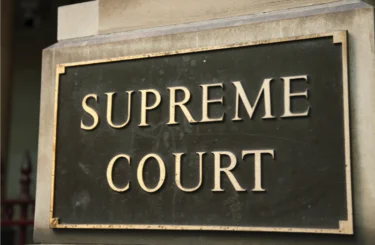
Medicare & the False Claims Act: Worthless Services Theory Unlikely to Survive
Qui Tam relators (commonly known as whistleblowers) are apparently undeterred by the lack of success in pursuing False Claims Act (FCA) cases that are based on a theory of worthless services. Despite the fact that FCA suits based on this theory rarely succeed, they have been steadily increasing in number for years, particularly in the context of the federal Medicare program.
A typical FCA case against a Medicare provider alleges that the provider falsely billed for services that were not actually provided to the patient, a clear case of fraud under 31 U.S.C. § 3729(a)(1)(A). Another common theory in FCA cases is that medical services were provided even though they were not medically necessary. Medical necessity is a precondition to Medicare reimbursement, and submitting a claim to Medicare for payment amounts to an implied certification that all preconditions to reimbursement have been satisfied. If the services were not medically necessary, then submitting the claim amounts to a false certification, plainly prohibited by 31 U.S.C. § 3729(a)(1)(B).
The worthless services theory takes a different approach. A relator who pleads the worthless services theory alleges that services were actually provided to the patient in response to a medical necessity, but that the quality of the services provided fell so far short of the applicable standard of care that reimbursement is not warranted. Under the theory, submitting such a claim to the federal government for reimbursement forms the basis of the fraud, thereby invoking the FCA.
According to the defense bar, the central problem with the worthless services theory is that it attempts to expand the reach of the FCA by transforming medical malpractice (typically a state issue) into a federal case of defrauding the government. Judges have been reluctant to play a part in this legal transubstantiation, and they dismiss the vast majority of worthless service cases after finding that the services provided had some incremental value, even if they did not meet professional standards. Failing to meet the standard of care, judges reason, is an issue properly addressed by state medical boards in disciplinary proceedings or by state courts in medical malpractice litigation—not by federal judges.
Despite its unpopularity with the federal bench, the worthless services theory has some intuitive appeal, to be sure. After all, why should the public coffers be depleted to reimburse Medicare providers for shoddy or even dangerously deficient services? On many levels, it looks and feels and sounds like fraud. But qui tam relators and their attorneys, beware: the worthless services theory has only achieved success in cases where the services provided fell so dramatically short of applicable professional standards that they were akin to or worse than doing nothing.
The best advice? Before proceeding with a case under this theory, make sure that the worthless services being complained of were, in fact, truly worthless.
Rod Johnston
Rod Johnston is a member of the Complex Litigation Group, participating in the firm’s direct and class action litigation on behalf of those harmed as a result of wage and overtime violations and consumer fraud.





